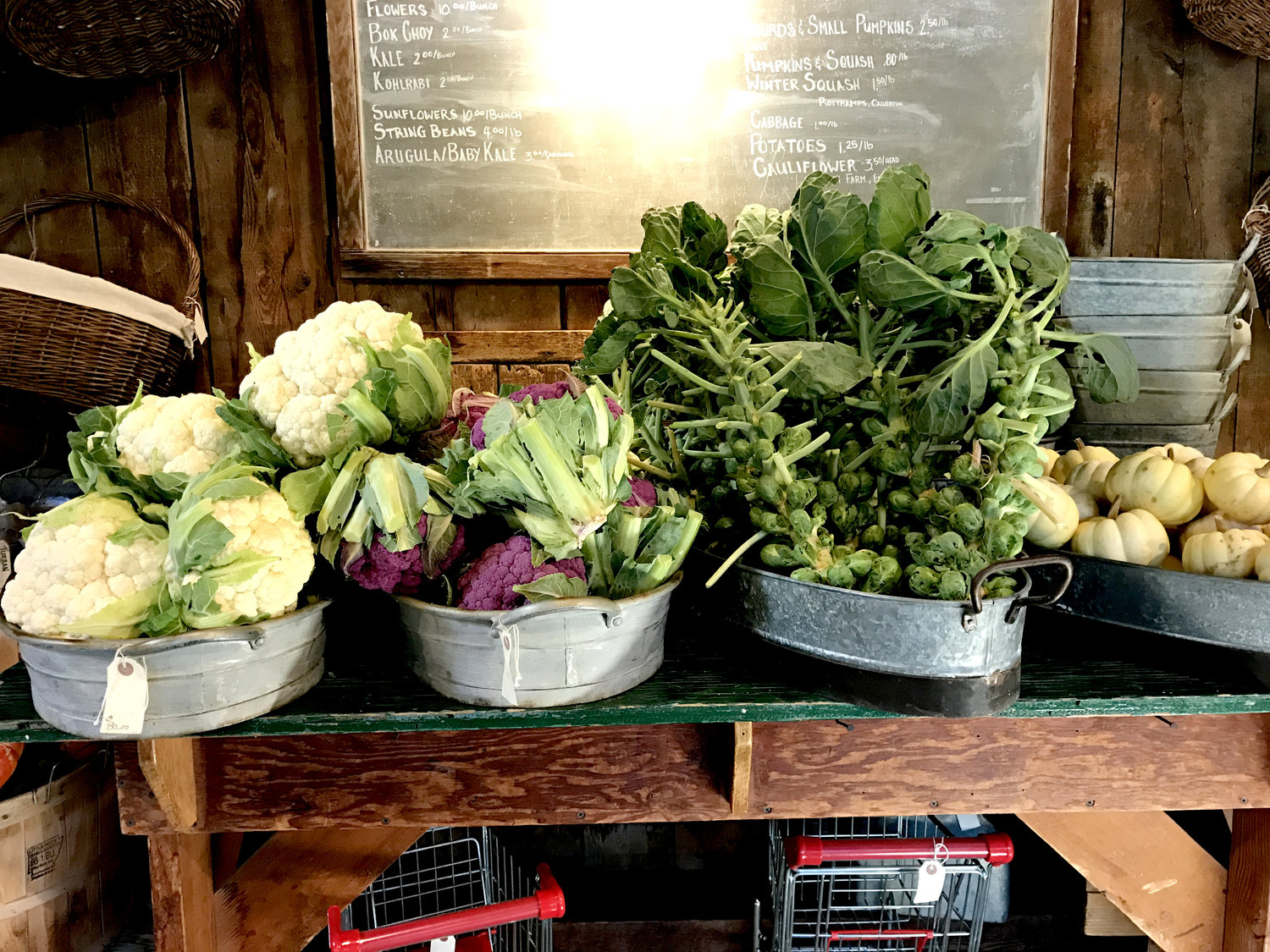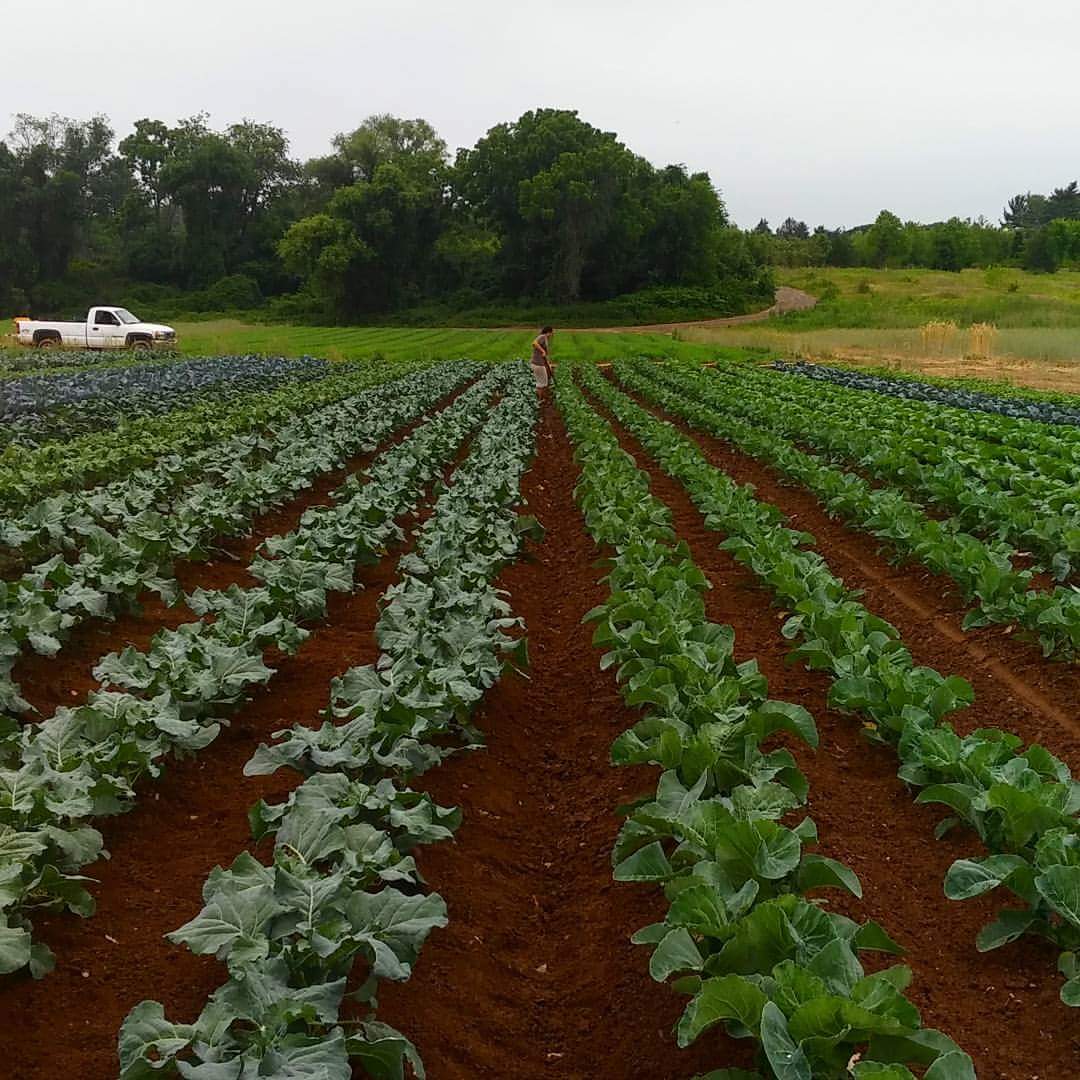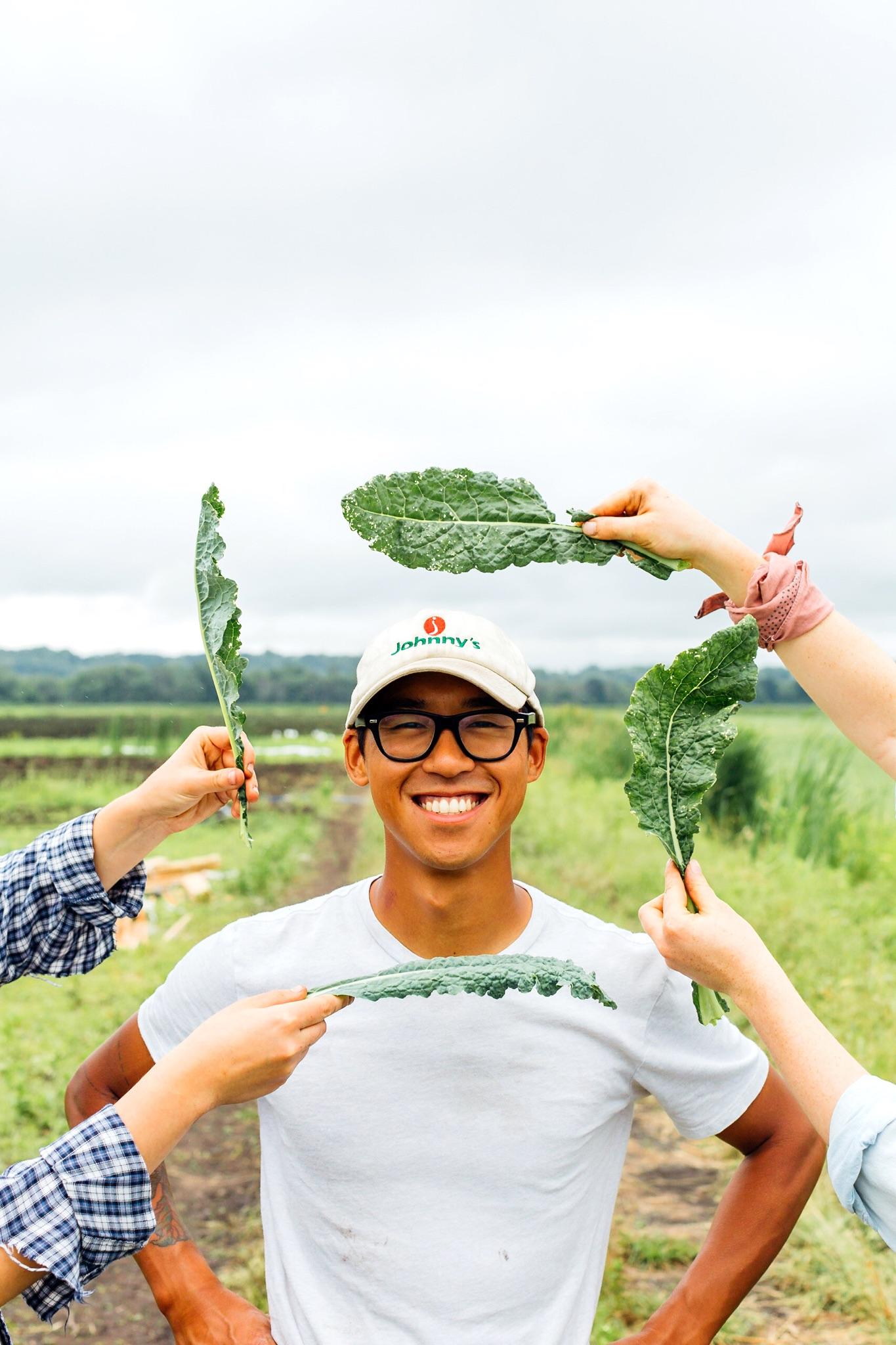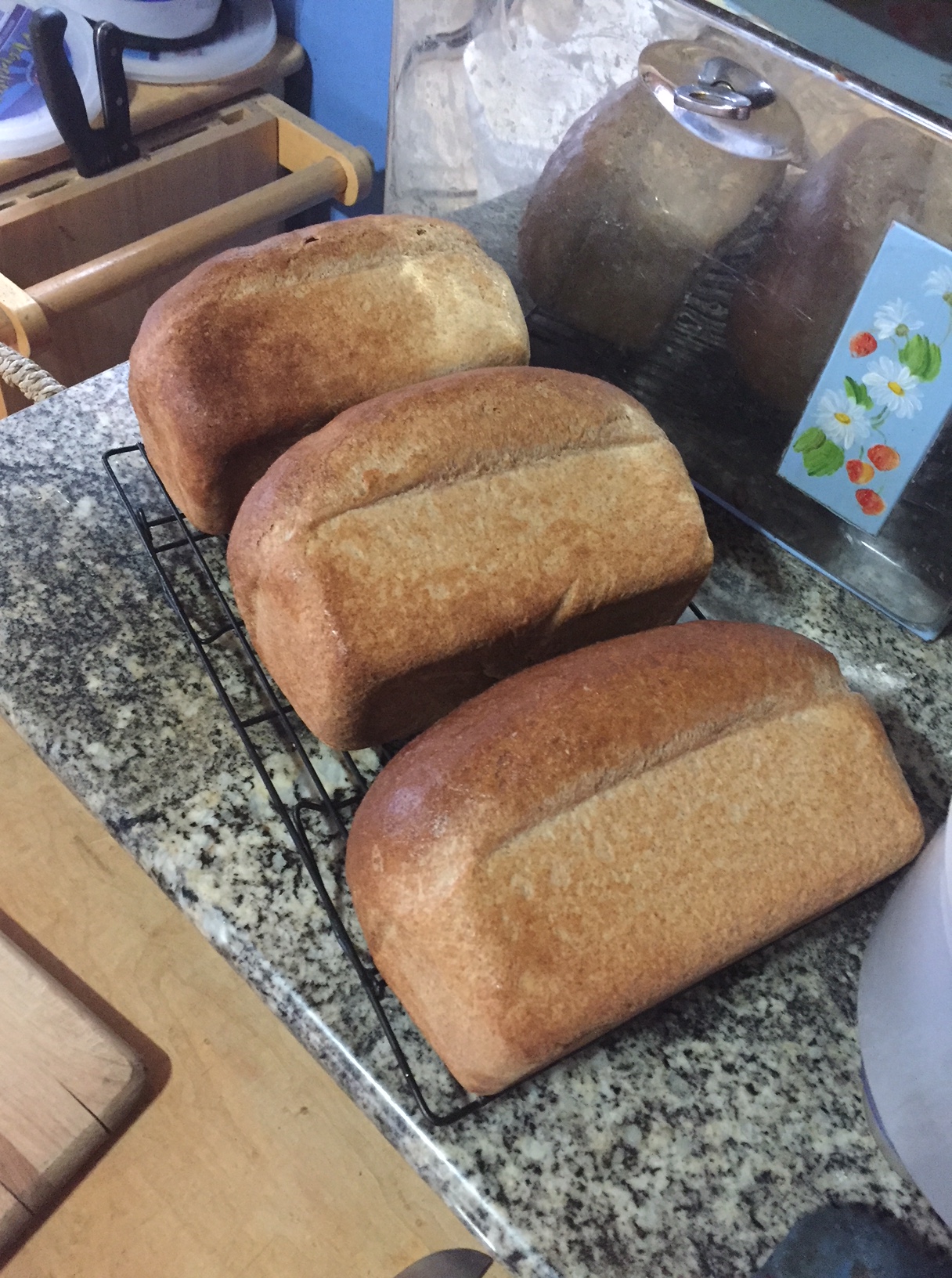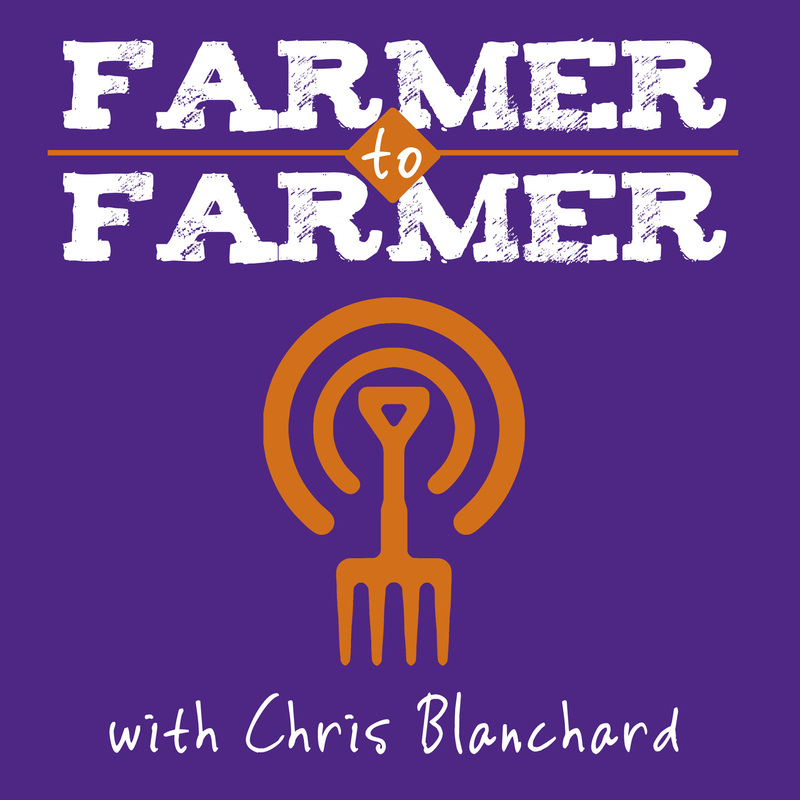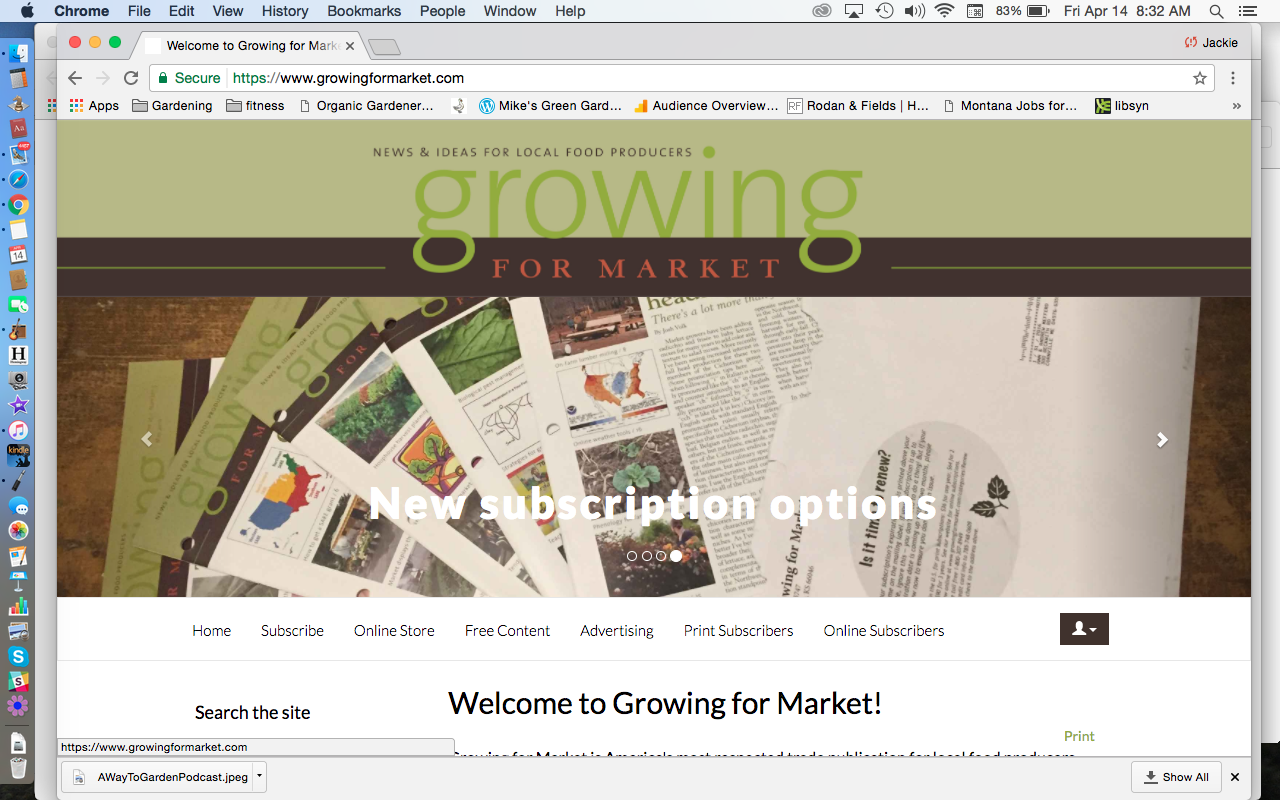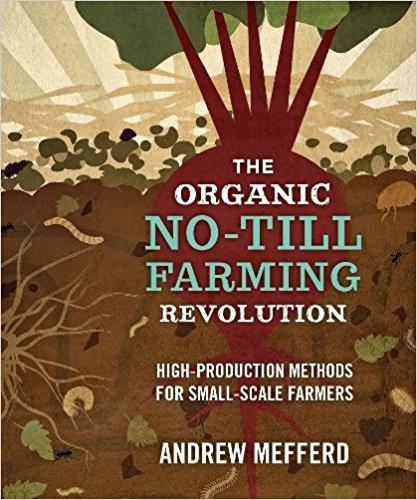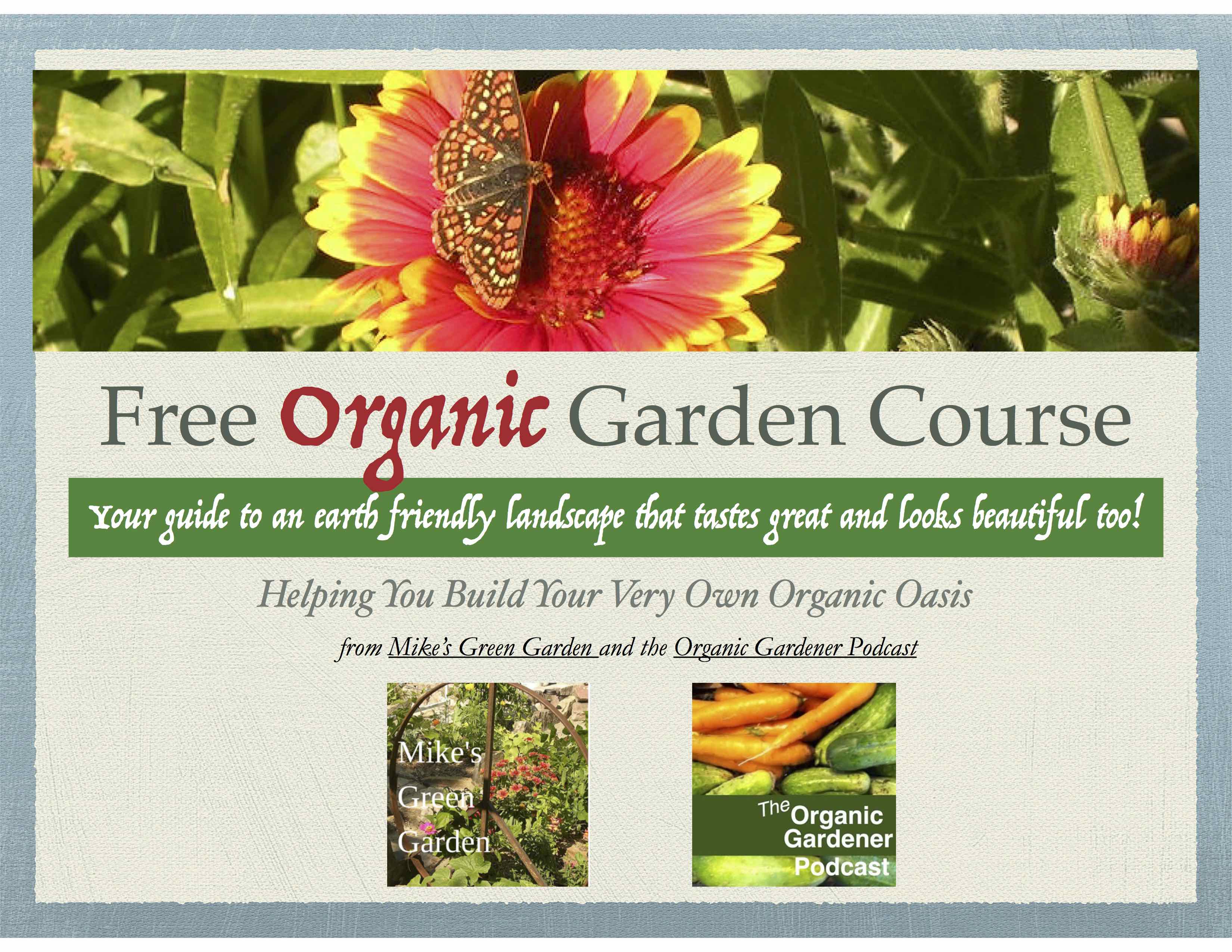Youngs Farm
was founded in 1892 as a result of a marriage between the Youngs and the Hegemans (the farm is located on Hegeman’s Lane). Currently the 4th and 5th generation of the Youngs Family operate and manage the business. Formerly a wholesale operation, we now sell nearly everything we produce out of our farm stand on site. Our store specializes in selling both our own and local produce, as well as house made pies, breads, cookies, muffins and biscuits. Additionally we produce a variety of house made soups, savory pies and quiches and a series of jams and preserves. Finally, we carry a series of carefully selected grocery, gift items and traditional candy.
Market
Our farm stand sells produce – both our own and from other Long Island farms. We also sell our baked goods and prepared foods, soups, dips, quiches and pot pies. The stand features a carefully chosen selection of groceries, gifts and housewares which rotate seasonally.
Tuesday to Saturday – 10am to 5pm ‧ Sunday – 11am to 4pm ‧ Closed Mondays
91 Hegemans Lane ‧ Old Brookville NY 11545
516-626-3955 ‧ in**@****gs.farm
Aidan And Tim
I am so thrilled because my mom has been begging me to get them on the podcast because I have been there many times and it’s a place that’s near and dear to my heart.
Tell us a little about yourself.
Young’s farm is a family farm
it’s been in the same location since 1892. I work with my wife.
my mother in law is the owner.
- gen 5 running the farm
- evolved
- dairy farm
- farmer wholesale in NYC
- Around the time my mother in law in mid 20s
they started selling things locally
community built locally
-
full store on site
-
bakery here
-
a gift shop
-
prepared food items with our produce in season
-
open February to Christmas
-
currently farming 15 acres altogether
3rd year farming organically
We are not certified organic
- 10 acres in production and 5 in cover crop
- wide variety of crops
Trying to simulate what you can get in a grocery
That’s kind of our current state
Aidan want to give your background?
- going on 3rd year as farm manager
- I’m new to Long Island but it’s where my finance is from
- excited for this opportunity
- well established such a fixture in the community
Part of the team as we transition to organic production
One of the things I don’t want to forget to ask is I saw on the website you bring in things from other farms and I think my listeners will be interested because a lot of my listeners are Green Future Growers. They are gardeners, but they have businesses, they are very environmentally focused and they have a green business or they work for a green business or they are an educator in the sciences or botany or horticulture.
I think they will be interested in that cooperation piece, selling other farmer’s produce. nobody’s mentioned that and I saw that in there what a great idea because it enables you to have your market at your farm and you’re not having to deal with going to other farmer’s markets, you used to be a wholesaler and now your mostly a retailer.
Tell me about your first gardening experience?
My first garden memory is in my grandfather’s backyard was a garden effectively.
So that’s really my first memory as a small child, playing back there with over sized zucchini and throwing them in the pond for the fish, that was my first exposure to it.
The vegetables that he grew right from the ground
I didn’t immediately go into gardening after that but that was my first experience
Aidan: My first experience
- was definitely when I was really young
- my parents were avid gardeners my father had a little bit of ahomesteadwhere he raised animals
as an adult in agriculture
I got into landscaping and tree services
I ended up going to college at Sterling College in Vermont
- Started working up there
- then in the Hudson Valley
- and now farming on Long Island
That’s interesting I just talked to Larry Tse from this restaurant they call Dig Inn in Boston and NYC who’s farm is in the Hudson Valley
So how did you start?
My first farm job
- was part of an internship
- every ag major was required to apprentice on a farm
That farm would focus on
- grass fed beef and raw milk
- vegeteables
- value added vegetable products
- kimchee and sauer kraut
- livestock oriented
garden variety vegetables
gradual but steady
focus more and more vegetables so now I don’t think about animals
Interesting that I didn’t think about animals till I started my podcast. And also we talk about lawns a lot because that’s where your pets are playing and your toddlers are learning to call and I didn’t think of it really because my mom never used chemicals but our neighbors sure did, we never used them at our house so I hadn’t really thougth about it.
Do you want to speak about what made you choose to go organic?
Tim: I can speak to that a bit, prior to Aidan being here, prior to my being here
farm manger Charlie who had worked her for 40 years
system was established as a conventional farm.
ended up getting cancer and passed away didn’t expect him to pass away when he did. What we did learn in that process. As his health was declining he was the
- primary applicator of pesticides
- etc it wasn’t getting applied and he wasn’t up to it
- We didn’t see a dramatic change in yield in what we were getting
- after he passed away
- many customers asked if we were getting
- not getting any benefit
- conventional farming
what’s the point of it? He passed away in late March 3 years ago
exactly
After that we began looking for a farm manager
we didn’t bring on Aidan right away
- transitional period
- weren’t really spraying for the balance of that year
- treated seeds
- seed order had already occurred
As for the transition since then. I think there has been a learning curve
We haven’t seen antyning fall off the cliff in terms of production
- increased quality
- neglected
- soil it self
- quality and maintenance
Applying appropriate cover crops
manures
not typically applied
Now we are much more conscious
rotating
focusing on our soil.
This is so interesting! You have been dropping Golden Seeds like crazy! I had no idea you were going to talk about any of this?!
We weren’t necessarily a place
most farms to sclae are quite small so even if the farmi s conventional
unless its really mechanize
only spraying when absolutely necessary
not an every week application, systematically, mostly for economics
Most famers that grow on the island, the scale people are at
money they are making it is not financially feasible to spray with regularity
as we mentioned earlier we do buy from other farms. We are considerate of that as well
We buy form conventional farms, know the other farmer’s personally and know their general farming practices!
Do you want to tell us about something that grew well this year.
Aidan: Well, let’s see
Tomatoes are a huge crop for us
It’s hard to imagine this farm without tomatoes
We will continue to change the way we grow tomatoes
nice secession
stable supply of tomatoes
people when peak season hits you have tons of them and tomatoes go to waste
we couldn’t turn all of our surplus into sauce if we
FOCUS: increasing
- quality
- stable supply instead of that bell curve peak in August where you are
drowning in tomatoes
couple different ways
- using caterpillar tunnels
mobile greenhouses or mobile high tunnels
relatively simple to set up
according to your crop rotation
plant different
- varieites
- growing indeterminent heirloom tomatoes in a traditional methods
single or double stem
I have a couple of questions. You said you’re spreading things out so you have a steady supply? Do you have them in February or march?
training them up
we don’t have tomatoes now
Most people the idea is the planting of tomatoes once
if we were to do that we would have a huge surplus of tomatoes in just august
starting just a few weeks ago starting on the greenhouse – Those will be planting in April in like 3 weeks or so
the idea would be hopefully will be right in time for fourth of July
we don’t want to be harvesting things that end up in the compost
finding that balance of having enough and not too much
- constant supply
- instead of a huge amount at once
- quality wise
- fertility
fertilizer regimen
better quality fruit and that can be said for all the crops
you can really hone in on that fertility regimen
What do you do for a fertility reginmen?
- it’s compost based
- in addition to that we use
- kelp meal
- transplat
- plant with kelp mean and feather meal
- source of nitrogen to he them
- foliar spray at first flowering
- seaweed based at flowering
- once fruit set occurs we increase potassium is important to fruiting crops
- do that with an organic sulfate of pot ash
a lot of tomatoes growers can do is over fertilize nitrogen where you get get these beautiful tropical looking green plants
nitrogen
typically feeds the greens chlorophyll
lighter feeding contrary to what people think
- have bigger crops or squash
- lettuce
IDK if anyone has gotten into how to get tomatoes to get more fruit, or I forgot. Is the caterpillar tunnel to keep out those caterpillar worms?
No, I mean, it’s picture
- a high tunnel green house
- it ends up looking like a caterpillar
- greenhouse plastics
- holds on with a rope. The plastic looks like a caterpillar.
- tunnel looks like a caterpillar
- For the tomatoes horn worms probably does help
- tomato horn worms come from a nocturnal moth
- whether they’re in a
- cover the plants so they can’t lay their eggs on them
Some growers roll down the side
close up the greenhouse at night time.
The tomatoes plants probably like that to keep the heat in at night like in Montana where it gets really cold at night. Sounds like it kind of helps keep the caterpillars off
mostly to keep rain off
can get all types of flour diseases associated with the rain on the leaves
main reason
Tim: Caterpillar tunnels help with general
trying to focus more on season extension
offer more to our customers throughout the year
bakery and the farm side of the business
two different customer bases. So we do the best when everybody’s shopping
more produce the longer in the year. That’s partly why we are investing in those extension piece.
keep those vegetable shoppers
Well, thanks for sharing that because my listeners are definitely interested in these market things and I was just looking in the top 10-20 episodes of downloads since January basically and one was a woman NINA HEINZINGER, PhD, RS who talked about the cottage food bill that passed in Montana and that are passing around the country to help farmers extend their revenue steams.
Ultimately we need more businesses enabling you to hire Aidan and he have a quality job and also having access to quality food.
Is there something you would do different next year or want to try/new?
Well, I’ll just piggy back on what Tim was saying about season extension. We’re gonna have a lot more room for winter growing
- winter spinach
- few other crops like arugula
- a salad mix
- a greens mix
Spinach
I have to say in general spinach is the hands down the best and most hardy winter growing green
can over winter without a greenhouse in a lot of climates
helps with leaf quality and aesthetics of the leaves
experimenting more with winter growing in general!
For one I am so in love with arugula because when I went to Paris I got arugula salad to celebrate the first 100,000 downloads of the Organic Gardener Podcast. It always reminds me of my first meal there right before I saw the Eiffel Tower!
I planted some this Febuary and by March 15th, there were little tiny leaves but just 6 of them is enough to make my sandwich taste awesome! I wanna say last year I planted it July 26th and it was coming up in September, and I picked it at Thanksgiving in November in the snow.
Do you have some now? There’s a woman in Montana who has kale for sale.
Yes, we have some out in the field that will be
spinach
arugula
baby kale
Tell me about something that didn’t work so well this season.
I’d say one is definitely learning curve, I wouldn’t call it a complete failure
We were trying to use more plastic mulches
In a farm our size they are quite useful
new to using them but it actually made weed control difficult on the edges of the plastic
Something I don’t want to rely on using one time plastics like that
biggest failure was using plastic mulch on more crops which is something I’m gonna try to stay away from.
What are you gonna use instead?
more cultivating
on some crops
we’re not really equipped like straw, it’s really expensive probably much more
We were just talking about this last year mike got 50 bales for $100 bucks and this year those same bales are like 3 bucks a bale so it’s so much more we can’t afford them. Mike has what I call the mini farm that he planted. What did you say you are like 10 acres?
10 acres of vegetable crops
we’d be paying $5 a bale
same dilemmas there’s a good chance that they weren’t
farming organically herbicide or weed seeds.
weed something
something
one other thing we’ve been experimenting is using:
living mulches
annual ryegrass
ends up looking like a green lawn grass type of thing you can mulch for weed suppression
I was just gonna ask that. We’re just learning really about growing green cover crops. I think Mike’s working more on like planting them after he pulls a crop out.
Let’s take a minute to thank our sponsors and affiliate links
Now Let’s Get to the Root of Things!
Which activity is your least favorite activity to do in the garden?
Tim: I’m ideally working much in the farm in case of an emergency
break glass
in theory if everyone shows up and deos what tey are supposed to be there, on a day to day basis.
crop planning
I would say, I haven’t had to do this in the past year but my least favorite thing is picking up plastic that you have used for mulch. Historically I don’t like doing that.
As a shout out did you see that thing on Facebook Mike showed me this weekend of those people swimming through the plastic ocean. Those people swimming through the water and there’s a stingray and fish and there’s another reason!
Wind
Aidan: I got a couple
I’d say maybe any task that fighting the wind
- green house film that has come loose
- row cover
- insect netting
pretty miserable
fixing irrigation leaks
fittings
normally what I end up using
pipe piece to put inside a hose and here are these clamps that look like radiator clamps like if you pick up the hood of your car and there are metal brackets
What is your favorite activity to do in the garden?
So Tim you know like if you’re sitting in the office doing the accounting and bills thinking I wish Aidan would call me and say he Tim we need some help doing this!
Tim: Occasionally I am called to harvest when staff is not around I do like that I particular harvesting beets and carrots
cultivating
- satisfying
- having a great harvest
- weed free
- What is the best gardening advice you have ever received?
Tim: for me, I spoke after our old Farm manager passed away
I spoke with a variety of people where it could go and how it could change.
The most critical thing for me
we should be focused on improving the soil and growing good soil if we can achieve that our plants will be working great on our own
- we won’t be dealing with as many issues and
- changing that focus
- much more involved
- process of where the farm goes and that has been a key point for me!
What a perfect shout out for mother earth the biggest key for our show for me has been healthy soil
Aidan: best gardening advice would be just in general
simpliflying all the processes
Gardeners get really passionate about what they want to do
- over complicating a lot of things
- keep it simple
- processes that work
more just alluded about the base of the soil
Using compost and tarps
can be huge help for
covering soil with tarps with weeds to protect the soil from erosion
wind and rain
erosion
irrigation figured
The other thing I was gonna say Tim I love the way you went and asked other farmers and people for ideas because so many people talk about the best thing you can do is ask other people get feedback and put it in your own way! Another great tip for listeners!
A favorite tool that you like to use? If you had to move and could only take one tool with you what would it be.
Aidan: since I came here
work as a farm manager
More of a mechanized vegetable farm I have ever worked on.
The whole process of getting
tractor
implements
daunting so I would say definitely my favorite tool would be the
spader
spader is what we use for our primary tillage
cover crop under to plant a cash crop
shovels big scoops that rotate on an access to invert the soil
IT does it in a really gentle way, a more gentle way
doesn’t break apart the aggravates in the soil
makes cover cropping an easier process for the farmer
simplifies
Tim: just to jump on that quickly
before I hired Aidan
We used to plow very regularaly which creates a plow plate
no
at the depths of where you plow
there becomes a hard surface where roots can not easily penetrate
That makes sense
It allows the soil to
keep it’s natural biodiversity happening in a much better way then when you plow.
Excellent. The first time I heard of no-till agriculture was when Jon Moore was on my show and I was like I ma now wondering are we still recording? Going back and forth between windows…. at the very end I was like no-dig?! He was like yes, I’ve been talking about that for like a half hour now but he explained it again.
About not breaking up the bio-organisms down there. I was totally listening and thinking if I could play this for my fourth graders thinking I was visualizing… our comprehension strategy this week is visualize!
so it’s kind of something compared to a rototiller
- scoop through the soil
- really pulverize it
- bigger shovel looking things that go slower
- really just flips it
- that’s the big difference
I think there’s a lot of great things to be said for no till operations
but I have yet to see
particularly in our climate where the soil has to be warmed up I haven’t really seen anyone doing it on our scale
once you get passed an acre or an acre and a half
crops do need loose soil doesn’t have to be tilled, they need a loose soil
On the garden scale people will use a broad fork
For us that’s not really feasible if we are using cover crops we have to terminate that cover crop!
I was gonna say, I did this primer course on Anna Hess’ book where she talks about methods of killing are going to be one of the the biggest decision makers in what you use where.
I would say with Aidan
no till thing
for a garden scale
something worth experimenting with
smaller level
from my understanding
leading edge of organic
minimal use of amendments
challenges
associated with it
willing to experiment I’d say go for it!
Yeah, I don’t know if anyone has talked about doing it on a large scale
- classic no-till would be conventional corn and soybean and we know that is really dependent on use of herbicide and tillage
- sub soiling every other year
- just a type of thing planting annual vegetables annual typically requires some type of land disturbance
A favorite recipe you like to cook from the garden?
Tim: not to steal your arugula thunder Jackie I love just
arugula olive oil lemon and a little parmesan
delicious representation arugula
for me: I’ll do another simple one
We grow a fair amount of shishito peppers
- little green pepper the size of your index finger
- kind of similar to a padrone
- all I do with them is
- put them in a cast iron sea salt
- olive oil and butter
- blister them
- delicious!
- not very spicy
- Tim: actually rarely hot
- one in 20 is spicy
- mostly in the range of a bell pepper
- Japanese item you might be able guess from the name
Where did you find all those people to ask?
TIM: definitely not internet based.
alluded to we buy things from other farmers so I had the opportunity to develop relationships
when I came to the farm
Charlie had the system under control
wasn’t involved
passed away
- Mentors
- who do you think I should talk to
- who do you suggest I reach out to
- most people I spoke to were really Long Island based
greater NY new Englanding
nothing really beyond that
Farmer- to – Farmer from Chris Blanchard
No, I had Chris Blanchard on, he’s more focused on people who are professional gardeners. The more podcasts the better on growing food.
if you’re really into the nuts and bolts
how and why and different strategies great source!
It’s opened my eyes not that it has changed too dramatically what we’d but reminds me to
open minded
for me
I definitely listen to Farmer-to-Farmer
kind of online
magazine but also online
They’re awesome!
- online data base
- search it
- plug in that word
- greenhouse tomatoes or spinach or something.
I could be wrong but isn’t that Lynn Byczynski?
Yeah she started it recently handed it over to Andrew Mefferd
Greenhouse trial technician researcher at Johnny’s selected seeds just wrote a book on greenhouse production
The Greenhouse and Hoophouse Grower’s Handbook: Organic Vegetable Production Using Protected Culture
and also
The Organic No-Till Farming Revolution: High-Production Methods for Small-Scale Farmers
Awesome because when I first read her book, I was like yah! Thats me I want to be a flower farmer and I did a lot of the things she recommends, but then when I talked to Lisa Ziegler in VA I realized I have a lot more to do, she was like we plant like 1000 sunflowers a week plus like a ton of other flowers, and I haven’t gotten anywhere near that. I’m pretty sure I get their email.
A favorite reading material-book, mag, blog/website etc you can recommend?
TIM: I have to give Aidan a lot of credit for this too.
The Lean Farm: How to Minimize Waste, Increase Efficiency, and Maximize Value and Profits with Less Work
got a lot of good insight from
still looking to apply a lot of that insight
still not there
compelling and interesting way to go about management
We have a lot of other staff
about 20 other people
- cooking
- selling
- cleaning
management is on my mind a lot.
That’s tough whether you’re trying to manage a class of students like I try to do each day or adults. There is a definite thing to deal with or skill to master with there.
How about you Aiden?
Aiden:
I have so many farm books, if I had to pick just a couple that are relevant production to gardening

The New Organic Gardener by Eliot Coleman
Any of Eliot Coleman’s books

the John Jeavons book
any of those.
They have everything in it!
- crop spacing
- fertility regimens
- varieties to use
those books are very comprehensive I think a lot of people would find them really helpful!
one other internet resource
Roxbury Farm in the Hudson Valley
If you’re looking for the nitty gritty on how to:
- row crops
- specific details
- spacing
- time intervals
- weed control
extraordinary large info amount of information on their website.
If you have a business to you have any advice for our listeners about how to sell extra produce or get started in the industry?
I would say, we were very fortunate that we are one of the last farms in our county. It’s really surrounded by this densely populated well-off to-do area
We have a very nice market around us immediately willing to come and shop and buy our vegetables.
If you have extra produce and want to get started in the industry you need to consider the market
where can you market those things
don’t go further then that
don’t hurt yourself
figure out some way to start
Aidan: My advice for someone starting off after you have your market figured out.
Having some self control in front of the seed catalog instead of trying to grow 2 varieites of everything. I would recommend starting off
10 or less crops and figure out how to really grow them well
- edit
- take away crops based on
- which ones are doing well
- simplify things
- not complicate things
- What can I have a constant supply of this
I just have to ask you Aidan, if someone’s just graduating high school and thinking about going to college and they want to become a market farmer would you say go to college, or work on a farm, farm manager?
I would realistically “I would ask them if they are going to have to pay for college yourself”
out of pocket
quality education
through working on farms
taking part in a legitimate internship as an apprentice
part of the deal is you’re getting a stipend but also a quality education
that’s where you’re gonna get the most hands on experience
ways and resources kind of get an education
-
keyed into the agriculture community
-
education happens all of a sudden you’re not an outsider looking in
-
once your in that community people are willing and even eager share your experiences
-
I have found that more so with farmers
if you’re talking to plumbers and carpenters they tend to be more elusive but farmers are really excited to talk to other farmers they want to share!
I think it’s because it’s hard work and if you’re interested and willing to put in that hard work they know and it’s a passion to share. It’s not really competition a farmer’s market isn’t going to succeed if there is not a lot of food their and choices.
IT’s not a questions of education
as a manager as a hirer I think someone who did go to school is definitely a differentiator for sure. But that being said, I did not go to school for
graduated from college
- degree in film and studio art
- real estate
- then I got married and my wife family had a farm
I think what Aidan said is very true the farming community is open and typically willing to share
north east
there’s a kindred spirit there aren’t as many farms
less as competition more about keeping the farms that are here here.
One final tag on point
in terms of resources
the amount of material available on the internet has grown exponentially
This is my 7th year now and it’s so different from when I started
plenty of opportunity either way
if you can afford
traditionnel education
I’ll just add on a little bit, I don’t want it to sound like I am coming down too hard on college
- having a formal education
- some background in technical things and plant sciences that comes in helpful
10 year lag
But as far as farming techniques there’s about a 10 year lag between what farmers are doing, land grant university which are more focused on conventional production so there’s a bit of a lag between what the cutting edge organic producers and organic crop production
Formal science is really helpful, it’s just like a discipline thing it’s hard to learn that through internet if you are not being forced to study it.
This is exactly what listeners need to here if they want that formal background or if they are like don’t make me sit in a classroom one more day that will give them some feedback.
Final question-
if there was one change you would like to see to create a greener world what would it be? For example is there a charity or organization your passionate about or a project you would like to see put into action. What do you feel is the most crucial issue facing our planet in regards to the environment either in your local area or on a national or global scale?
Tim: I’m not sure this is a global scale issue, it probably is in a lot of places
but it’s something I would like to see more locally here, I’m sure it happens on the west coast
terms of community based composting system
food waste turned into compost
There are many many people living on long island and I know it’s just mixed in with the regular trash.
I’m not trying to do it tomorrow here at the farm but I would like to spearhead that, take them from people. We buy lots of compost
able to take some of those food scraps out of people garbage and turn it into compost for us or compost that could be eventually sold
locally
There is not an organization attached to that just something I feel.
COMPOSTING
You have no idea how much that is near and dear to my heart! and My listeners heart! because Alissa LaChance from Dirt Rich Composting here in Montana is consistently in the top 3 most downloaded shows along with JM Fortier and Megan Cain.
I teach here in a huge district where there is no composting going on and my husband is always like I nee to buy dirt and if he could just bring home that food from school it would be great dirt!
I just saw the amazing Rockstar Millennial Alissa at the free the seeds and also, my vice principal the other day saw me taking a bucket home the other day and was like what is that and I was like it’s my compost I’m not throwing this away in the garbage!!!
Probably coming soon! Maybe some listeners on long island will reach out and help get that started there.
Aidan: Well, this is Im gonna take a leap into deep waters here, this is way outside of the realm of everyday thinking. If we could just
reevaluate the way we subsidize agriculture
changing the type of ag we subsidize
when you fly from NY to Montana or California
mind boggling the scale of corn and soy
It’s mind boggling it is feeding us in the sense of confined animal farms
It’s unreal if we could end those subsidize to create a more organic patchwork of farming like we used to or if we could
subsidize
ecologically inclined diverse farms
sure it would be really complicated
going back to less input intensive farming
farming that looks like food coming off the farm.
You are not the first person on this show to say that, and Liz Carlisle even wrote a book
it’s not gonna be easy it’s gonna be worth it.
IT might not be easy to change those subsidizing and also the way farmers can get loans, if you’re getting crop insurance or buying seeds from this company they require tyou to use treated seeds.
Do you have an inspiration tip or quote to help motivate our listeners to reach into that dirt and start their own garden? A lot of my listeners are looking to increase production becasue they are looking to make the food they grow a little easier since it is hard work!
the food’s gonna taste a lot better. It’s hard to find qulaity
- salad greens
- tomatoes or anything
I have a hard time buying any produce in the dead of winter
I agree totally with Aidan on that
I was gonna say the same thing
A lot of the season extension that we push Aidan to do is because the grocery store right now if we can add one or two items
added improvement
The flavor you will get makes you want to go for it
Our health food store’s motto was It’s all about the Taste.
Our first garden goal challenge was to grow one thing so you don’t have to buy from the store. Mike really grew a lot I didn’t have to buy any food from August till December and Mike pickels beets for me so I don’t have to put tomatoes on my salad in the middle of winter they are so good when you pop that jar open!
How do we connect with you?
To get to Young farm if your on long island
LIE to exit 41 North and go up 107 about four miles and make a right on Hegeman’s lane it’s the only farm on the block you can’t miss it.
website it Youngs.farm
not
Aidan
email me at ai***@****gs.farm
questions related to varieties
If you do have listeners in the long island are they might be interested in what varieites.
Do you have a CSA if people want to sign up.
That’s ok. We are fortunate enough right out of the store on site here. As if it were a regular market, occasionally we sell, maybe 5% is wholesale. Most is sold here. We have a commercial kitchen so much of what we do is value added.
To go way back to the beginning of the episode a brief history of the farm, we started selling things from the farm, it was just a stand with covered form the sun. Her father was the main farmer
you can sell
they were making as much as trucking it into the city.
so they moved the building close to the road
just selling produce
soon after that
- baking pies
- cookies
- variety
kitchens and houses
migrant workers
commercial kitchen
really expanded since then in 1975-1980
Now we have 4 full time bakers – we’re well known for pies
At Thankgsiving we sell like 6,000 pies at thanksgiving. Between 5500-6000ish the last few years. Baking’s a big business at Young’s Farm as well.
That’s when I was a teenager, I graduated from HS in 1985.
The Organic Gardener Podcast is a participant in the Amazon Services LLC Associates Program, an affiliate advertising program designed to provide a means for sites to earn advertising fees by advertising and linking to amazon.com
If you like what you heard on the Organic Gardener Podcast we’d love it if you’d give us review and hopefully a 5 star rating on iTunes so other gardeners can find us and listen to. Just click on the link here.
and don’t forget if you need help getting started check out our new
Free Garden Course.com
Remember you can get the 2018 Garden Journal and Data Keeper to record your garden goals in
You can download the first 30 days here while you’re waiting for it to come in the mail.
We’d love if you’d join Organic Gardener Podcast Facebook Community!
If you like what you heard on the Organic Gardener Podcast we’d love it if you’d give us review and hopefully a 5 star rating on iTunes so other gardeners can find us and listen to. Just click on the link here.

About the author, Jackie Marie
I’m an artist and educator. I live at the “Organic Oasis” with my husband Mike where we practice earth friendly techniques in our garden nestled in the mountains of Montana.


